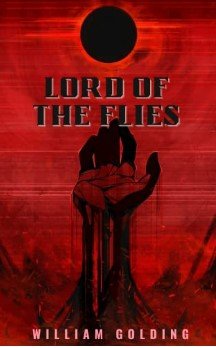
William Golding’s iconic novel, “Lord of the Flies PDF,” stands as a powerful exploration of human nature’s darker depths. Published in 1954, this gripping narrative delves into the unraveling of civility and the innate primal instincts that emerge when a group of young boys are stranded on a deserted island. This review examines the thought-provoking themes, character dynamics, and lasting impact of this literary masterpiece.
Stranded in Desolation
The story commences with a group of British boys, evacuated during wartime, whose plane crashes on an uninhabited island. The sudden loss of adult authority and societal norms thrusts them into a situation where they must establish their own order. The island’s isolation serves as a microcosm, reflecting the potential for chaos and darkness lurking within humanity.
The Descent into Savagery
As the boys attempt to create their own society, the fragility of civilization becomes evident. Golding masterfully portrays the gradual erosion of their moral compasses, highlighting the allure of power and the pull of their primal instincts. The transformation from well-behaved children to savage hunters paints a grim picture of human nature unrestrained by societal constraints.
Characters as Allegorical Figures
Each character in “Lord of the Flies” represents distinct facets of human behavior and societal archetypes. Ralph, elected as the leader, embodies order and rationality, while Jack embraces chaos and instinctual desires. Piggy symbolizes reason and intellect, and Simon represents spiritual insight. Through their interactions, Golding critiques the fragility of social systems.
The Beast Within
A central motif in the novel is the concept of “the beast,” a creature that the boys fear, which is initially thought to be a tangible threat. However, as the story progresses, it becomes apparent that the true beast resides within the boys themselves—their latent cruelty, fears, and darkest impulses. This internal struggle highlights the eternal conflict between good and evil.
Loss of Innocence
“Lord of the Flies” keenly observes the loss of innocence as the boys confront the harsh realities of survival. The initial fascination with adventure and freedom turns into a brutal awakening as they become perpetrators and victims of violence. This loss of innocence serves as a universal commentary on how circumstances can shape and distort one’s moral compass.
The Ritual of the Hunt
The boys’ gradual descent into savagery is epitomized by their ritualistic hunting expeditions, where they become consumed by the primal thrill of the chase. The act of hunting becomes a manifestation of their newfound detachment from societal norms, highlighting the disintegration of the boundaries that separate civilization from chaos.
Simon’s Profound Revelation
Amid the darkness, Simon emerges as a beacon of hope and wisdom. His interactions with the “Lord of the Flies,” a severed pig’s head impaled on a stick, lead to a profound revelation about the true nature of the beast. In a moment of insight, Simon recognizes that the beast is within them, an acknowledgment that ultimately costs him his life.
Themes of Fear and Power
Golding delves deep into themes of fear and power dynamics, showcasing how fear can be manipulated to gain control. Jack’s rise to power is fueled by tapping into the boys’ fears and capitalizing on their desire for security. This exploration of power dynamics echoes real-world scenarios where authority is often derived from exploiting fear and insecurity.
Enduring Relevance
“Lord of the Flies” continues to resonate because of its timeless exploration of human nature’s darker aspects. The themes of power, fear, and the fragility of civilization remain relevant in contemporary society. The novel serves as a cautionary tale about the potential consequences of unchecked power and the need for vigilance against our primal instincts.
William Golding’s “Lord of the Flies” is a harrowing masterpiece that delves into the depths of human nature, unmasking the darkness that can emerge when societal norms are stripped away. Through its allegorical characters, gripping narrative, and thought-provoking themes, the novel forces readers to confront uncomfortable truths about the human condition. A stark reminder of the thin veneer that separates civilization from chaos, “Lord of the Flies” remains a powerful commentary on the eternal struggle between good and evil that resides within us all.
Comment from the Author of Lord of the Flies (PDF)
“The theme is an attempt to trace the defects of society to the defects of human nature. The moral is that the shape of a society must depend on the ethical nature of the individual and not on any political system however apparently logical or respectable.”
—William Golding



